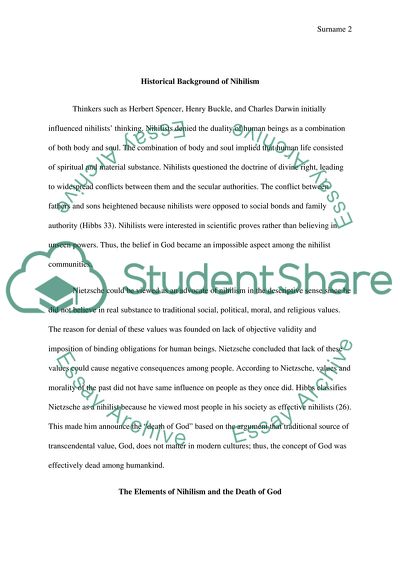Cite this document
(“Nihilism and its Relationship to the Death of God Essay”, n.d.)
Nihilism and its Relationship to the Death of God Essay. Retrieved from https://studentshare.org/philosophy/1651740-nihilism-and-its-relationship-to-the-death-of-god
Nihilism and its Relationship to the Death of God Essay. Retrieved from https://studentshare.org/philosophy/1651740-nihilism-and-its-relationship-to-the-death-of-god
(Nihilism and Its Relationship to the Death of God Essay)
Nihilism and Its Relationship to the Death of God Essay. https://studentshare.org/philosophy/1651740-nihilism-and-its-relationship-to-the-death-of-god.
Nihilism and Its Relationship to the Death of God Essay. https://studentshare.org/philosophy/1651740-nihilism-and-its-relationship-to-the-death-of-god.
“Nihilism and Its Relationship to the Death of God Essay”, n.d. https://studentshare.org/philosophy/1651740-nihilism-and-its-relationship-to-the-death-of-god.


